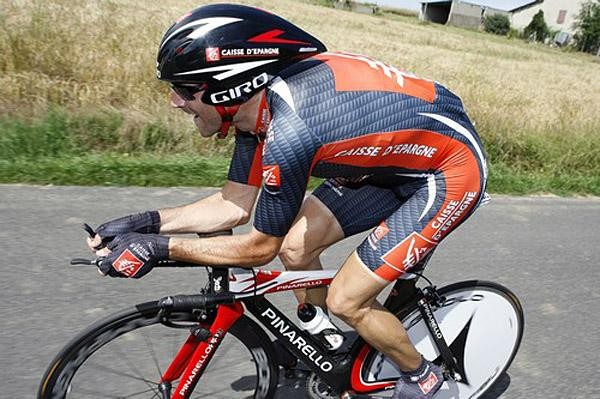Valverde signs riders' agreement and reviews Tour's parcours
By Antonio J. Salmerón Caisse d'Epargne's Alejandro Valverde yesterday signed the UCI riders'...

By Antonio J. Salmerón
Caisse d'Epargne's Alejandro Valverde yesterday signed the UCI riders' anti-doping agreement before taking a flight from San Javier (Murcia) to London, and the Tour de France, at half past three.
Preparing his luggage at home, the 27 year-old Spaniard left some time to analyze the Tour parcours with Cyclingnews. It will start with a prologue time trial in London, "in which it is convenient to pay attention because the first differences will already be established there, and it is important not to lose too much time from the beginning."
The first serious mountain stage is waiting for the riders on the eighth day of competition, between Bourg-en-Bresse and Le Grand-Bornand. It is nearly 200 kilometres, which includes the mythical Col of the Colombière, located less than 15 kilometres from the finish line. "The first days in the high mountains are always very hard, mainly because there are [bad] surprises, and I hope that I am not one of them," Valverde commented, smiling.
However, when we sighted the profile of the following day, which will finish on the top of Tignes climb he changed his expression. "Uh! That is very hard. The Cormet de Roselend climb and then the Montée Tignes climb, both of them of the first category, but without forgetting the climb to Montée de Hauteville... it will be another demanding stage," Valverde valued.
Stage nine will confront the always-exciting end in Briançon. "This is another hard stage, a very hard one, where it will be needed to pay more attention on the long descent once over the Galibier, but without forgetting the Col de l'Iseran. Also, before the Col du Galibier, we find another important climb, the Télégraphe."
After the Alpine summits there is the time trial in Albi of 54 kilometres. "I have been working thoroughly on this speciality, but the Tour is the Tour, and we are talking about so many kilometres. We need to be very concentrated during all the stage. It is also very important to know how to dose your efforts because you can pay a lot at the end for previous big efforts. For me it is better after confronting the Alps because the strengths among the riders will be more on par."
Get The Leadout Newsletter
The latest race content, interviews, features, reviews and expert buying guides, direct to your inbox!
The Pyrénées will present the riders with another three challenging stages. "They seem to be harder than the Alps. Its climbs are shorter but steeper. I do not know the Larraut of stage 16, when the Tour is in Navarra [Spain], and it will be very hard. When we were recently training in the Pyrénées, we were not able to completely ride this stage ... because it would have taken us more than 7 hours."
There is one final long time trial stage before Le Tour finishes, the penultimate stage. "It has a strategic location and length [55 kilometres]. The weakened legs will allow us to fight on the same level, and I think that the differences among us [GC men] will not be much," Valverde concluded.